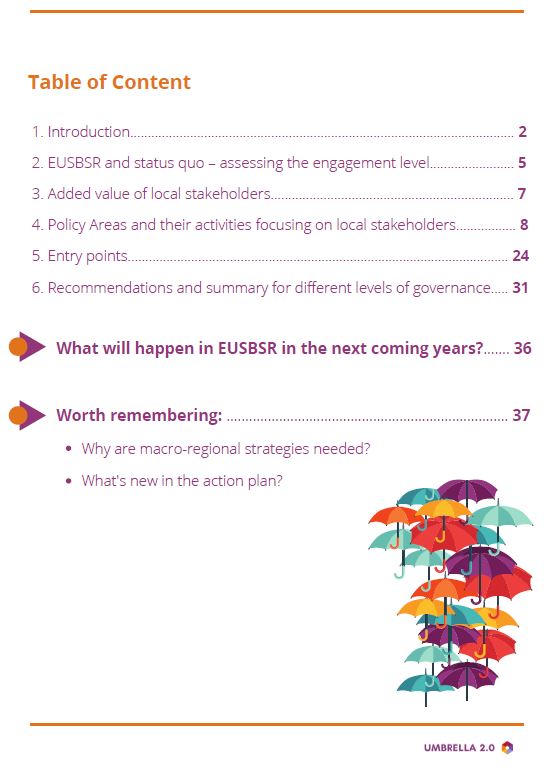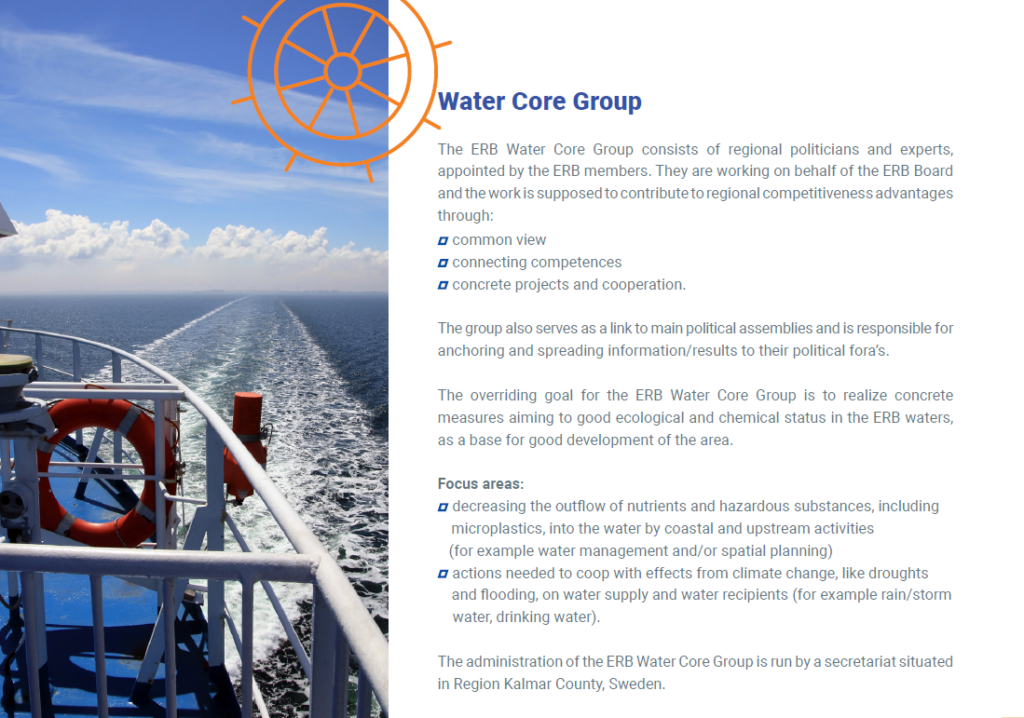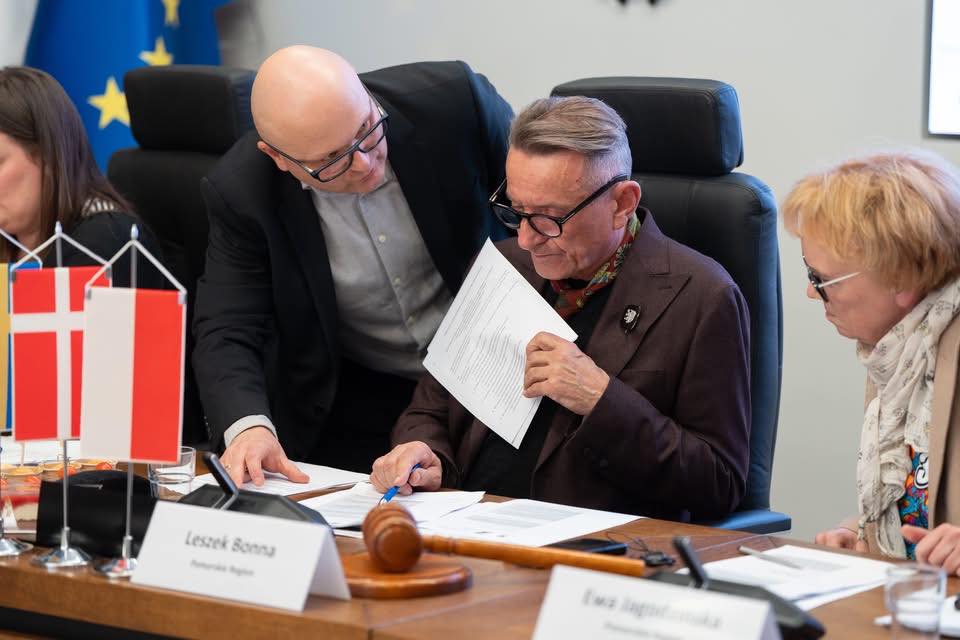In Saldus in Latvia, the simple wish for a fountain in the town centre has grown into a holistic concept that combines flood protection and water recycling with an upgrade of public space. The end result is a feasibility study ready for implementation – not only in Saldus, but potentially in many other places across the Baltic Sea Region.
Anyone strolling through Saldus without expert knowledge would not suspect how closely urban design and the demands of water management are intertwined here. The central square, some historic buildings, lively paths in between, small cafés and people meeting one another – all very pleasant, but at first glance just a small town like many others. Experts, however, quickly recognise the vulnerable points. In terms of its topography, Saldus has the shape of a natural bowl. As soon as it rains heavily, water rushes down from the slopes across the main square, Kalpaka laukums, into the lower parts of the town. Within a very short time, it floods streets, pours into basements and creates emergency situations for residents and local authorities. And the outlook is not encouraging: with heavy rainfall events becoming more frequent due to climate change, such situations are likely to occur more often and become even more severe.
Over the past three years, Saldus has set out to turn these challenges into opportunities. To begin with, the thinking was by no means as comprehensive as it is today. Everything started with ideas for beautifying the town. The mayor had long had the wish to enhance Kalpaka laukums with a central fountain. It was intended not just as a design element for the townscape, but as a real contribution to the attractiveness of the town centre as a place to spend time. The fountain, together with new greenery, was to create a place of encounter where children could play in the water on hot days. Up to this point, the project was simply a classic urban development measure.
A flow of future-oriented ideas
What brought about a flow of additional, future-oriented ideas was the close cooperation between the municipality of Saldus and the Kurzeme Planning Region – and their joint participation in the WaterMan project. This opened up a completely new set of questions: why not turn the planned fountain at this vulnerable point in Saldus into the anchor of a modern, forward-looking water management approach?
Such a plan would be an opportunity to address several challenges Saldus will face in the near and more distant future at once. The increase in flooding caused by more frequent heavy rainfall under climate change is only one part of the problem. In the medium to long term, climate data suggest that this region, too, will see more frequent dry spells and periods of water scarcity. On top of that, Saldus is confronted with a challenge that almost all small and medium-sized towns face today: to keep residents and attract new ones, they need to make themselves more attractive – for example by creating inviting public spaces where people enjoy spending time.
“In Latvia, water recycling has so far not been high on the political agenda; groundwater and surface water have generally been sufficient,” says Jānis Blūms, project manager at the municipal utility. “But in the future, it will be our task to manage and balance the shift between too much and too little water at local level. That means storage, simple, low-maintenance technology – and a willingness to stop thinking of all urban water use exclusively in terms of drinking water.”
Making water recycling tangible in an emotionally charged place
Based on these reflections, the first plans emerged for a “three-in-one” system. Rainwater that had previously flowed uncontrolled down the slope into the town was to be captured and buffered. An underground retention reservoir would absorb the surface runoff before it can cause damage. After that, the stored water could be used for irrigating green spaces or street cleaning, following UV disinfection. And of course, it would also feed the planned fountain, turning it into a powerful symbol of sustainable resource use at the heart of the town.
What Saldus has conceived here is remarkable, not least because it breaks with long-standing reflexes in urban development. A comparatively short-term political impulse was used to develop a holistic concept that goes far beyond what is visible. The fountain is not merely decorative; it is a functional part of a system that captures, stores, treats and uses rainwater multiple times. In this way, water recycling is made visible and tangible in an emotionally charged place.
At the same time, technical necessity and an upgraded public space are combined with education about a new form of water management for the Baltic Sea Region in times of climate change. The fountain becomes a teaching tool and showcase: instead of using drinking water for everything, it demonstrates a fit-for-purpose approach – using water in exactly the quality that matches the specific use.
Blūms stresses: “We want to show that water recycling is not an abstract technology, but something that works in a concrete, visible and everyday way – right in the central square of our town.”
A small setback becomes a catalyst
A few key facts and figures: technically, the concept envisages an underground retention tank with a volume of 90 m³, plus a multi-stage filtration system including UV disinfection and a monitoring system that records storage levels, water quality and water use in real time. A digital information screen on the square will explain the functioning of the system and display the main figures in real time. How much water is currently stored? What can it be used for? How much drinking water is being saved?
This makes integrated water management something people can grasp in very practical terms. “If you want people to become aware of a problem and support a solution, you have to make things transparent,” says Eva Jēkobsone, who has overseen the project for the municipal administration.
Everything was looking very promising, and it seemed that construction would soon begin. But then came a setback: when the concept went out to tender, the projected costs turned out to be significantly higher than the original budget. The main cost driver was the ambitious size and depth of the underground reservoir. Faced with this, the city council decided to put the project on hold. It was a critical moment – the kind that often brings promising ideas to a halt.
In Saldus, however, where the project had already gathered considerable momentum, this setback became a catalyst. Instead of abandoning the plans, the team chose to further develop and refine them. The concept was completed as an implementation-ready feasibility study – including additional potential applications for the treated water. “The project will not be implemented in the coming months, but it is ready,” explains Blūms. “We assume that implementation will take place in stages, depending on funding and political priorities.”
Sometimes willingness to learn is more valuable than prior knowledge
In refining and detailing the concept, the team also benefited from peer learning with the partner regions in the WaterMan project. Because water scarcity has not traditionally been a major issue in Latvia, the Saldus team initially had little experience with water recycling – let alone with combining retention, recycling and redesign of public space.
Instead of being discouraged by the temporary halt to the project, they continued to focus firmly on peer learning. Exchanges within the WaterMan partnership, particularly with the colleagues in Kalmar, Västervik and Gargždai, provided crucial impulses. Klaipėda University, Gdańsk University of Technology and the Berlin Centre of Competence for Water (KWB) contributed scientific expertise, shared studies, planning tools and practical experience.
“Sometimes the willingness to learn is more valuable than any amount of prior knowledge,” says Jānis Blūms. “We have benefited from simple, proven solutions. Now we are equally happy to share our experience.”
“From our point of view, it was in no way a disadvantage that the concept developed here would be significantly more expensive to realise than originally planned,” stresses WaterMan project coordinator Jens Masuch. The complexity of the solution, he argues, is not a weakness but a strength. The result is a technically well-thought-through, implementation-ready concept that brings together flood protection and water recycling in a targeted way. In other words: it is precisely the kind of solution that can build climate resilience in the face of increasingly extreme shifts between too much and too little water in the Baltic Sea Region. For this reason, the concept is highly valuable for many other places as well, which can use it practically as a blueprint. “Saldus and its feasibility study are, in a way, water recycling for the Baltic Sea Region in a nutshell,” says Masuch. This also includes safeguarding “nice-to-have” features such as fountains and green spaces for the future – by systematically integrating them into water management solutions.
What to do with winter water?
Nevertheless, there were still points and details that needed further clarification. This also became apparent in discussions at WaterMan partner meetings. What are realistic assumptions regarding maintenance requirements and costs? Where is the full set-up worthwhile, and where would a leaner configuration be more appropriate? And what should be done with the rainwater collected in winter, when the fountain is not in operation?
The answer was pragmatic: it could be used the following spring for street cleaning. “The reservoir will be built below the frost line,” explains Blūms. “The water can easily remain there over winter. Once it is needed, it will be available.” When the basin is full, an overflow will ensure that excess rainwater is discharged in a controlled manner into the sewer system. Even this eventuality is already built into the developed solution.
Water quality was naturally another key issue and raised detailed questions. Since the fountain is publicly accessible and children are expected to play in the water, high standards of hygiene must be applied. Blūms emphasises: “The water quality should match that of inland waters suitable for bathing.” To achieve this, the system is designed to undergo regular disinfection and continuous monitoring of relevant parameters. The planned information screen is intended not only to explain the system, but also to display current water quality data. This is meant to provide yet another example of the meaningful interplay between technology and transparent communication.
The first dry summer will surely come
Wherever such a system is built first, it will be far more than just an attractive water feature. It represents a shift in the way we think about water management in the Baltic Sea Region – the recognition that even in previously water-rich regions such as Latvia, the anticipated effects of climate change mean that prevention is better than cure. Design or disaster. Or, as Eva Jēkobsone puts it: “The first dry summer will surely come. Then people will remember Saldus.”
Here, the foundations have been laid for a solution that, if implemented, would also noticeably enhance the quality of life in the town. But the fountain was only the starting point. Through persistent work and constructive collaboration, it has evolved into a rich source of ideas for an integrated water management approach – all of which has flowed into a feasibility study that is now ready for practical implementation. Perhaps Saldus will be the first to make use of it. In any case, the search for additional funding is already under way there.
—
About the “WaterMan” project
Due to climate change, periods of drought are becoming more frequent in the Baltic Sea Region and drinking water, which is mainly obtained from groundwater here, can get scarce in certain periods. For that reason it will be necessary to use water of different qualities and to tap into other sources of “usable water” in the future. “WaterMan” supports municipalities and water companies in adapting their strategies. A region-specific approach to water recycling uses the alternation of too much and too little water, which has become typical in the Baltic Sea Region, to make the local water supply more resilient.
More information: interreg-baltic.eu/project/waterman/




